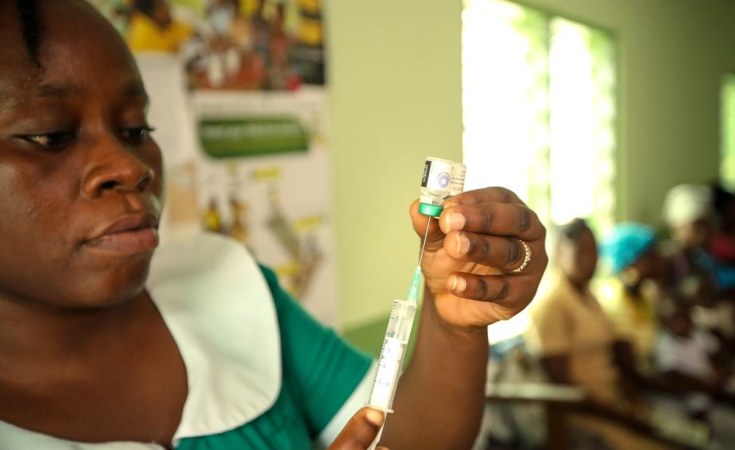In October, WHO recommended its use for the prevention of malaria in children.
The World Health Organisation (WHO) has added the R21/Matrix-M malaria vaccine to its list of "prequalified vaccines."
The global health body had in October, recommended the use of the vaccine for prevention of malaria in children following the advice of its Strategic Advisory Group of Experts (SAGE) on Immunisation and the Malaria Policy Advisory Group.
The prequalification means larger access to vaccines as a key tool to preventing malaria in children. The prequalification isa prerequisite for vaccine procurement by UNICEF and funding support for deployment by Gavi, the Vaccine Alliance.
The WHO in a statement issued on Thursday said the prequalification of the malaria vaccine, developed by Oxford University and manufactured by Serum Institute of India, is poised to expand access to malaria prevention through vaccination.
Malaria Vaccine
The R21/Matrix-M vaccine is the second vaccine against malaria to be approved, after the RTS,S vaccine which was approved in 2021.
WHO said demand for the limited-availability RTS,S vaccine has been "unprecedented," and the addition of the second vaccine is expected to meet the demand and provide sufficient vaccine supply "to benefit all children living in areas where malaria is a public health risk."
It also said both vaccines are shown to be safe and effective in preventing malaria in children and, when implemented broadly, are expected to have high public health impact.
Malaria Burden
Malaria, a mosquito-borne disease, places a particularly high burden on children in the African Region, where nearly half a million children die from the disease each year.
Nigeria, Africa's most populous nation, also accounts for a high percentage of the malaria burden globally.
The 2022 Nigeria Malaria Report shows that malaria death rates in Nigeria dropped by 55 per cent between the years 2000 and 2021, and incidence also dropped by 26 per cent within the same period.
However, with the existence of two vaccines, there is hope of ending the disease.
Pre qualification Benefits
The Director of the Department of Regulation and Prequalification, WHO, Rogério Gaspar, said achieving prequalification ensures that vaccines used in global immunisation programmes are safe and effective within their conditions of use in the targeted health systems.
Mr Gaspar said WHO evaluates multiple products for prequalification each year and core to this work is ensuring greater access to safe, effective and quality health products.
The Director of the Department of Immunisation, Vaccines and Biologicals, Kate O'Brien, said prequalification of R21/Matrix-M underscores the organisation's relentless commitment to wiping out malaria.
Ms O'Brien said this is another step towards ensuring a healthier, more resilient future for those who have lived for too long in fear of what malaria could do to their children.
"Together with our partners, we are united in the pursuit of a malaria-free future, where every life is shielded from the threat of this disease," she said.


